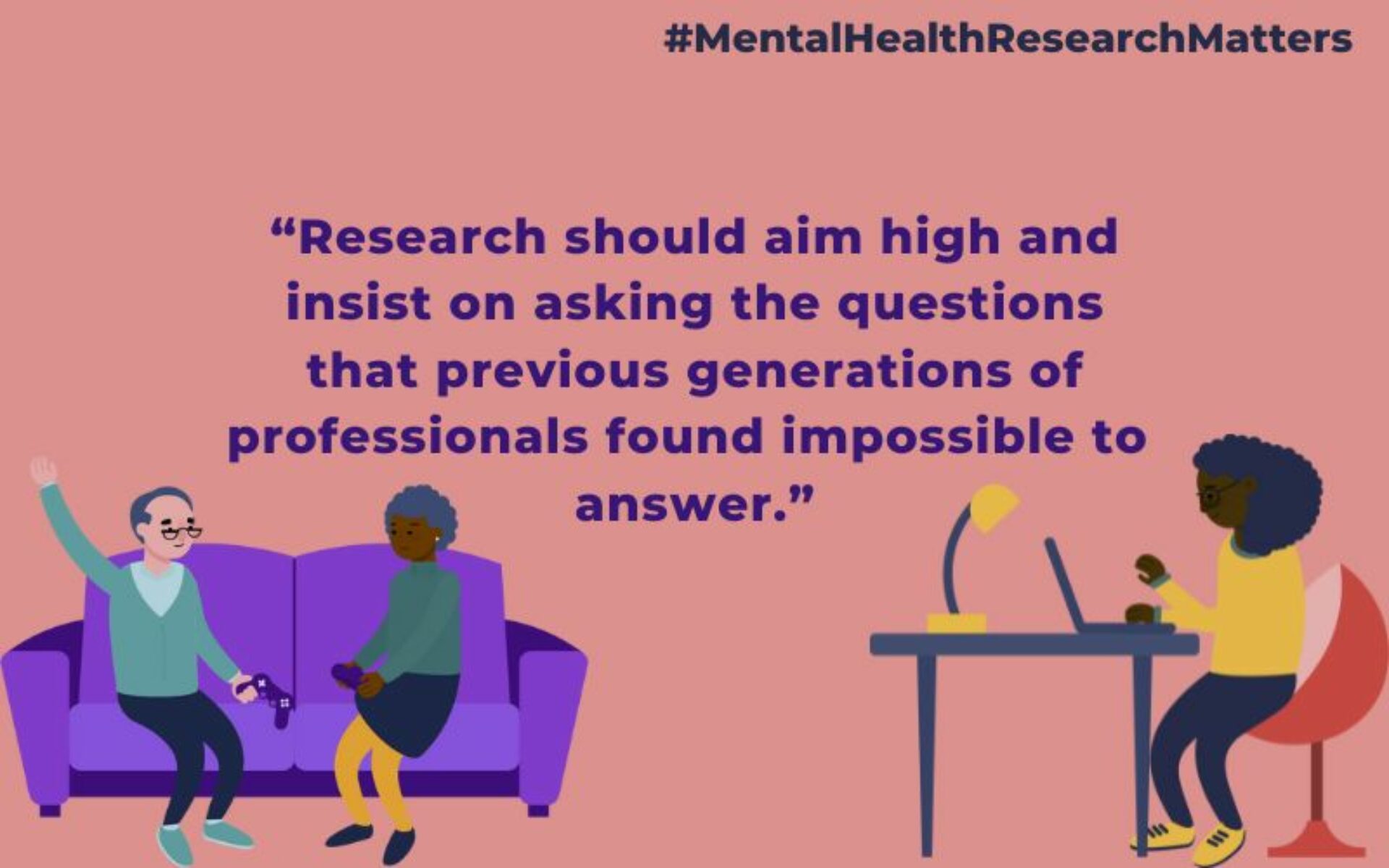Dr Fiona Riddoch is the co-founder of Words That Carry On, a mental health research fund in memory of her daughter Lindsay. Lindsay was passionate about the importance of lived experience in better understanding mental health. As a researcher within the field of renewable energy, Fiona understands the transformative power of research. Words That Carry On funds a study that seeks to improve our understanding of complex mental health needs and autism.
Why we need more, good-quality mental health research
Try googling “milestones in medicine” and then “milestones in psychiatry” or “psychology.” There is a startling difference in the results. Medicine confidently lists its major advances in different branches of the discipline and links it with powerful fundamental science breakthroughs. We can all recite some major advancements in medicine like the development of antibiotics, the cure for polio or improvements in cancer treatment
By comparison psychiatry and psychology have less clear breakthroughs to brag about. The milestones are of a wider nature dotted around classification, process, legislation and treatment approaches. This can feel challenging in terms of direction and progress.
Compared to physical health, our understanding of how to improve mental health seems to remain in early problem solving, such as listing and categorising aspects of conditions and using medication to moderate symptoms.
Medical research builds on knowledge and technical understanding developed over many centuries. It’s now boosted by technology and big data advances. The funding in the sector is substantial from both private and public funding. Mental health research, which is facing arguably the larger challenge at the moment, accounts for a quarter of all illness in the UK. However, it only receives six per cent of UK public research funding.
I believe that mental health research is instrumental in finding the solutions we need so people can live mentally healthier lives. We urgently need to improve our understanding of mental health to support the people who continue to struggle.
Families and friends are affected too. They are wrestling with the challenge of how best to help or cope when things get really difficult. We need mental health research to shift gear, providing new understanding, innovation and better solutions catering for the individual.
Mental health problems offer a particular challenge to research at this stage in our understanding as researchers are dealing with a large number of physical, social and mental variables which all need to be considered. Researchers can address this complexity by working with people with lived experience of mental health problems.
Lived experience at the heart of research
Words that Carry On (WTCO) is a charity that raises money for mental health research. The charity was founded in memory of my daughter Lindsay Riddoch. She struggled for years with poor mental health and found no real understanding of her case from clinicians.
Faced with the poor state of understanding of her condition she became a campaigner. With others, she pressed to have lived experience used as an essential tool in mental health research and provision. Lindsay became a powerful advocate of investment in mental health support and research across the NHS.
Based on her own experience of the health care she received, Lindsay wanted to see improved services designed and developed together with individuals of lived experience. She felt clinicians should always use lived experience to inform their work and their research. To ensure research is relevant and beneficial. As a result, WTCO, requires lived experience to be at the centre of any research we fund.
WTCO promotes the need for and funds fundamental research. We believe that the single sustainable way to improve the life of those with poor mental health is fundamental research. Research should aim high and insist on asking the questions that previous generations of professionals found impossible to answer.
We should all be mental health campaigners
However, researchers, can’t do it all themselves. The mental health community should insist on the need for greatly improved funding and research provision around mental health. In our day-to-day lives we should all encourage policymakers, funders, researchers and clinicians and service providers to identify and properly evaluate modern technologies and successful new approaches that can inform our understanding of poor mental health and our practise.
An immediate first step would be to fund better dissemination of current research findings. To encourage all NHS trusts to allocate an annual committed budget to work with researchers on trials of new approaches and findings, validating these in the real world.
Let’s make this the decade where we start to see better mental health research make real improvements in people’s lived experience.
Words That Carry On is hosted by McPin.
